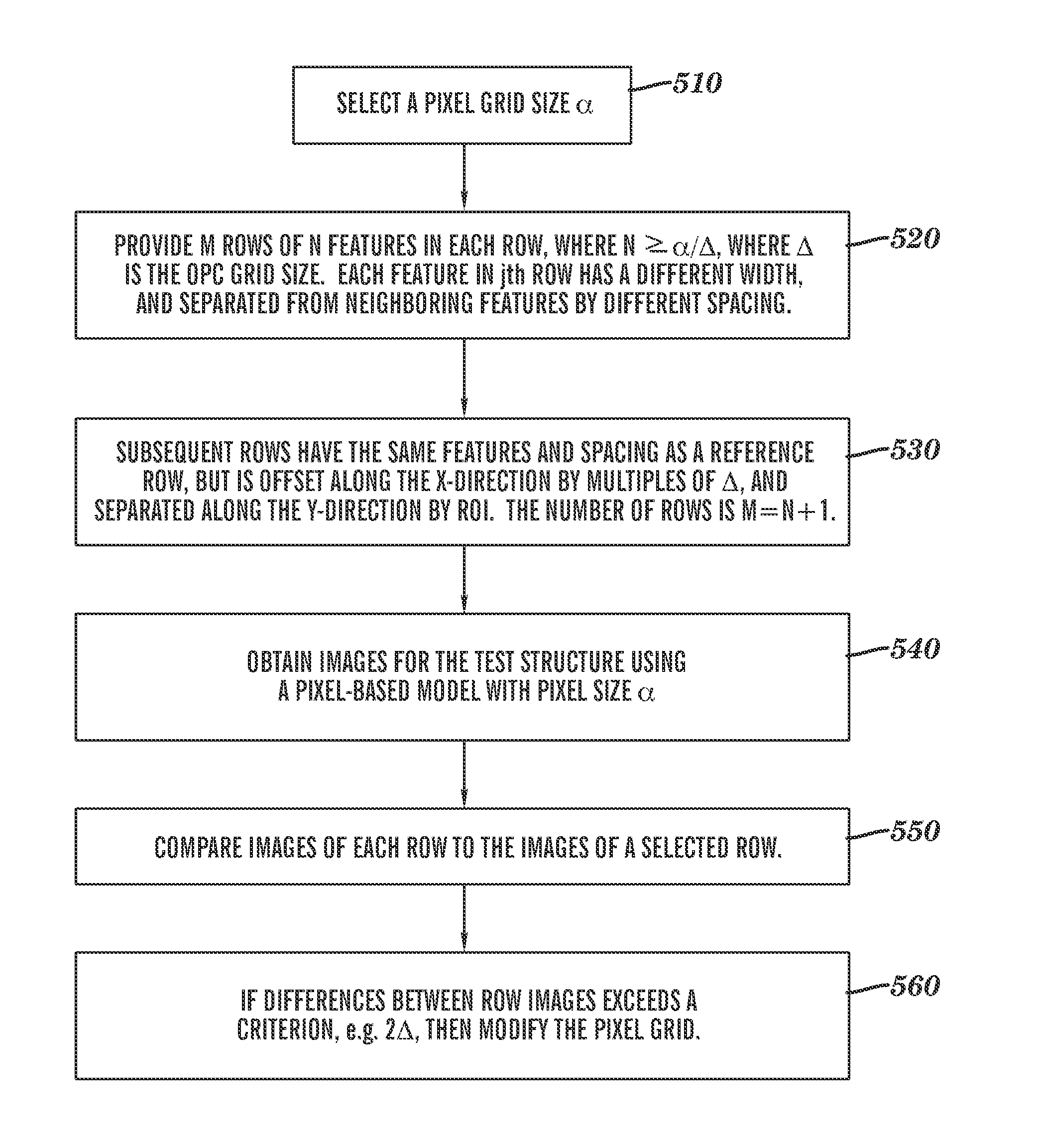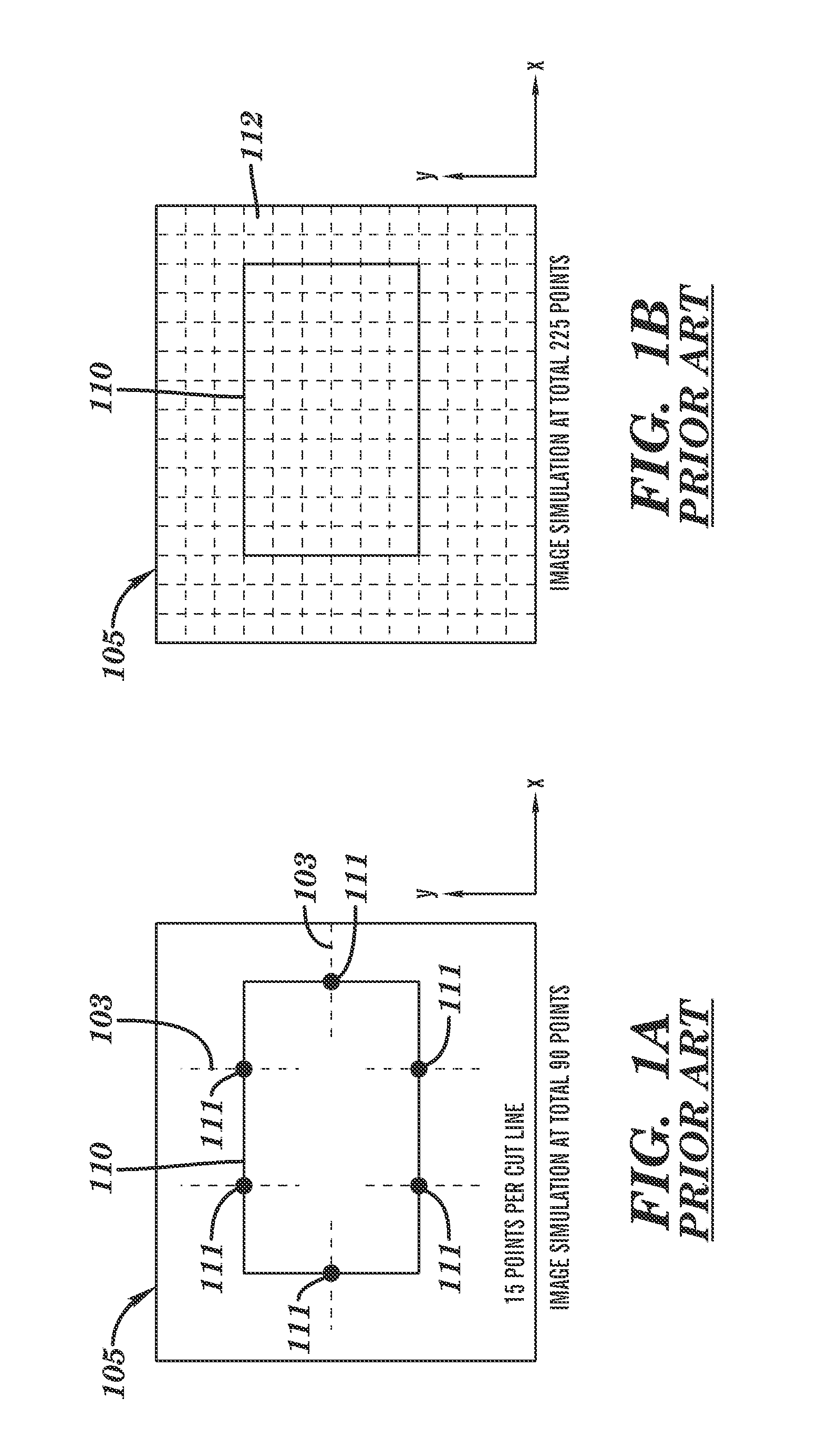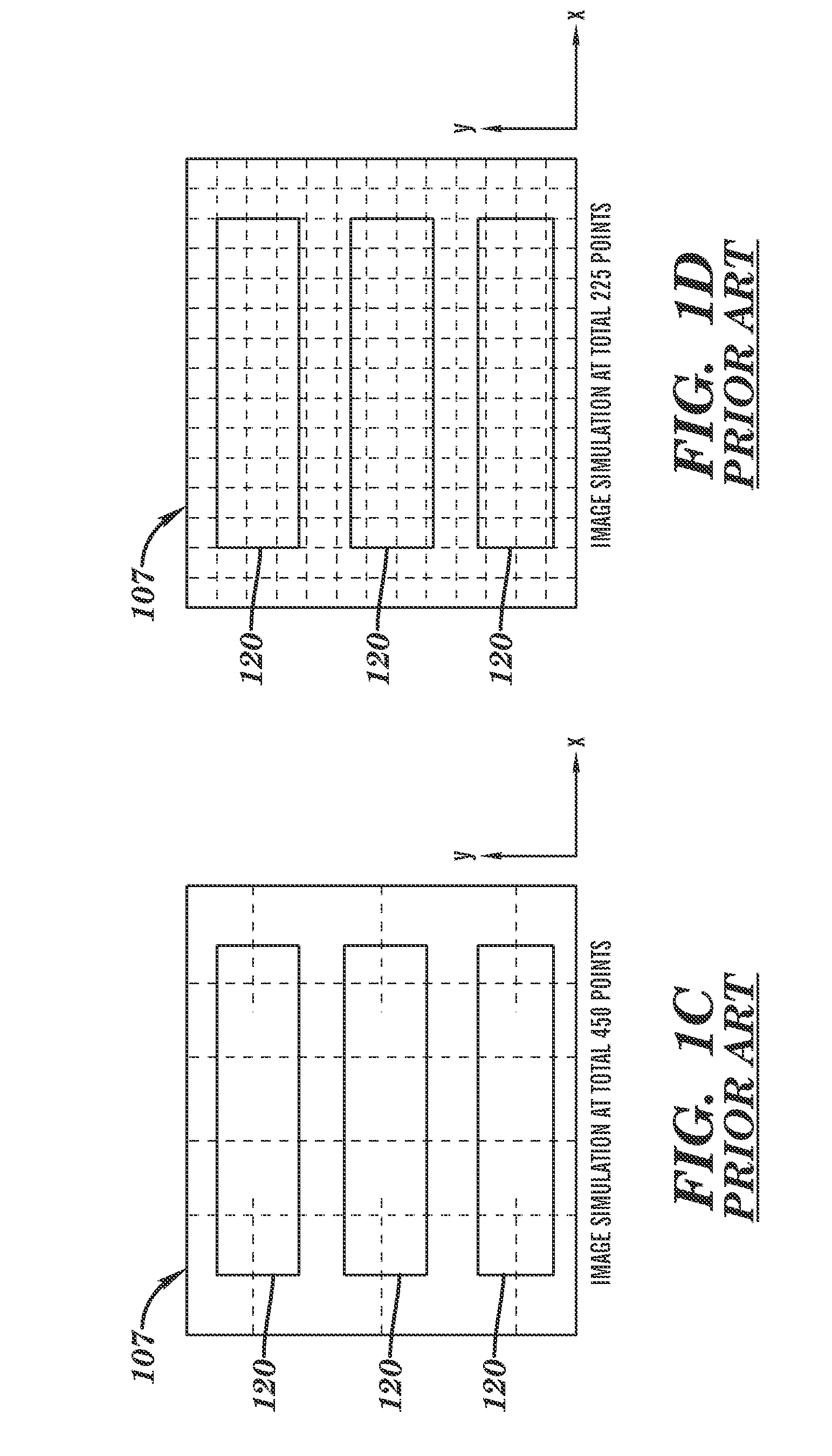Methodology and system for determining numerical errors in pixel-based imaging simulation in designing lithographic masks
a lithographic mask and image simulation technology, applied in the field of very large scale integrated circuit fabrication, can solve the problems of increasing computation costs, inability to compute, and inability to accurately simulate images
- Summary
- Abstract
- Description
- Claims
- Application Information
AI Technical Summary
Benefits of technology
Problems solved by technology
Method used
Image
Examples
Embodiment Construction
[0045]In accordance with the present invention, test structures are designed to characterize numerical and / or discretization errors in pixel-based process models used in designing lithographic masks. In a pixel-based process model, the pixel grid is typically designed to be uniform along a particular direction. The spacing in the x direction may be different than in the orthogonal y direction, but will be uniform along a given direction.
[0046]The selection of the size of the pixel grid elements is based on the effective resolution of the lithographic process, which is related to the Raleigh limit which is given by λ / (4NA), where λ is the wavelength of the illumination energy, NA is the numerical aperture. The pixel grid is given by α=λ / (k4NA) where k is a scaling or oversampling factor. For 45 nm technology, λ=193 nm. The numerical aperture of the optical system is typically about 1.2, but may range from about 0.45 to 1.3. The scaling or oversampling factor k is related to the devel...
PUM
 Login to View More
Login to View More Abstract
Description
Claims
Application Information
 Login to View More
Login to View More - R&D
- Intellectual Property
- Life Sciences
- Materials
- Tech Scout
- Unparalleled Data Quality
- Higher Quality Content
- 60% Fewer Hallucinations
Browse by: Latest US Patents, China's latest patents, Technical Efficacy Thesaurus, Application Domain, Technology Topic, Popular Technical Reports.
© 2025 PatSnap. All rights reserved.Legal|Privacy policy|Modern Slavery Act Transparency Statement|Sitemap|About US| Contact US: help@patsnap.com



